Target Evaluation & Molecular Therapeutics Group
Dr Olivia Rossanese’s group is investigating new targets to support the discovery of novel therapeutics to treat cancer. The group is also defining the molecular and genetic factors governing a cancer’s sensitivity to treatment with new drugs, to guide their clinical use.
Research, projects and publications in this group
The Target Evaluation and Molecular Therapeutics Group works within the multidisciplinary environment of the Division of Cancer Therapeutics to identify novel targets for drug discovery and to support the discovery of new small-molecule therapeutics to inhibit these targets.
Dr Olivia Rossanese
Director of the Centre for Cancer Drug Discovery & Head of Division:
Tumour Microenvironment and Pharmacology, Target Evaluation and Molecular Therapeutics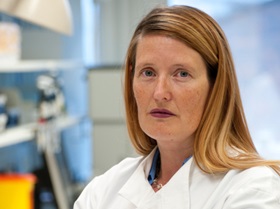
Dr Olivia Rossanese is Director of the Centre for Cancer Drug Discovery and Head of the Division of Cancer Therapeutics. She is investigating new therapeutic targets for the treatment of cancer and examining the molecular consequences of their inhibition in cancer cells and tumours.
Researchers in this group
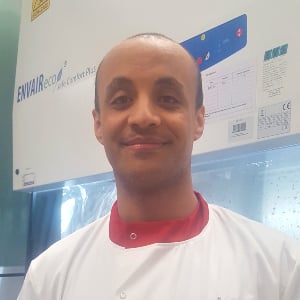 .
.
I am a Postdoctoral Training Fellow interested in the study of the E3 ligase CUL4 CRBN and how to reprogram its function in the context of drug discovery.
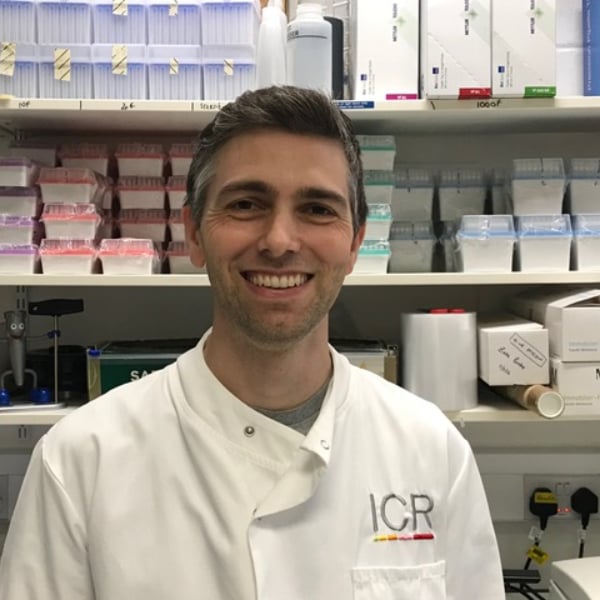 .
.
I am a drug discovery biologist, specialising in the biology of B cell malignancies. I am working on gene regulation networks that control tumour plasticity and cell state, reprogramming cancer cells to commit to terminal differentiation or cell death using innovative compounds discovered at ICR.
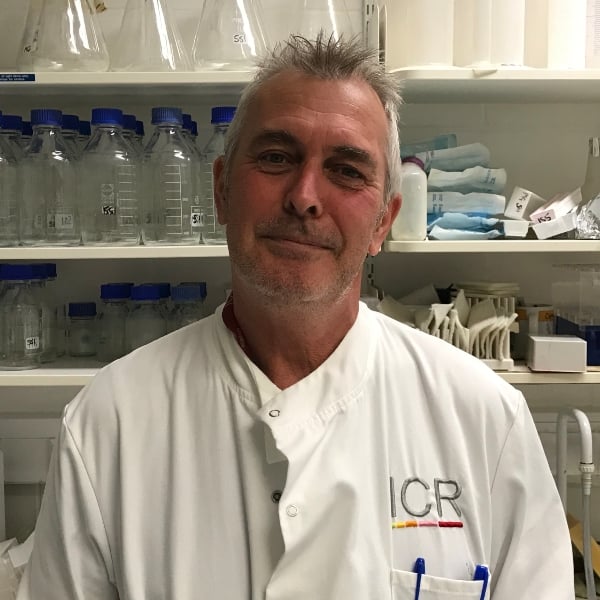 .
.
I have worked at the ICR for over 15 years. I have worked on a number of drug discovery projects, including performing pre-clinical biological target validation for the CHK1 and AKT programmes; both of which produced clinical candidates. In my current work I have been pioneering molecular biology techniques to use as a tool for new drug target validation.
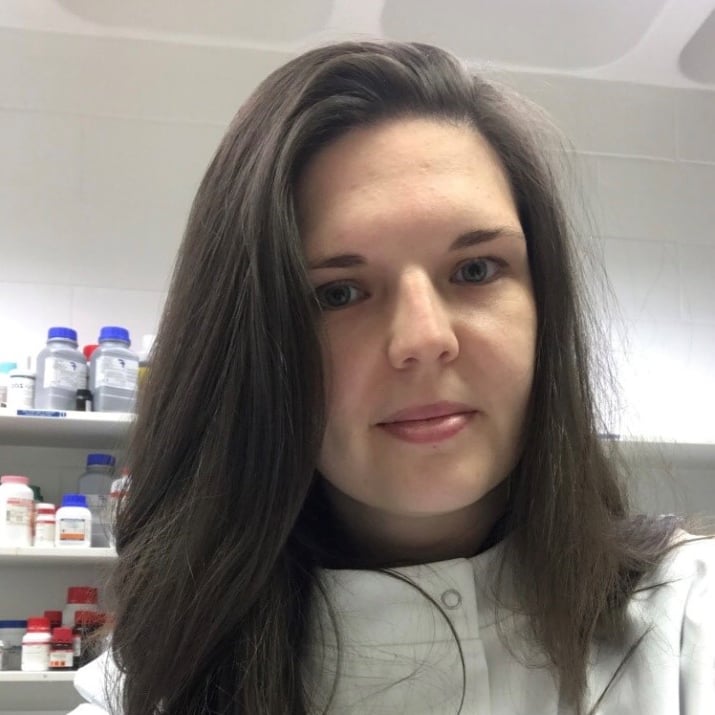 .
.
I am a Postdoctoral Training Fellow investigating DNA repair mechanisms and therapy resistance in estrogen positive breast cancers. My research at ICR is focused on developing therapy resistant breast cancer models, which will allow me to use a range of molecular and gene editing techniques to assess target contributions in the development of therapy resistance.
 .
.
Email: [email protected]
Location: Sutton
I joined the ICR in 2018 as the Executive Assistant to the CCDD Director and Head of the Cancer Therapeutics Division. I am very proud to be part of the ICR and the Centre for Cancer Drug Discovery. The Administrative team works very hard to provide the best support possible in an environment that encourages collaboration, the sharing of information and forward thinking. My daily aim is to provide the best support I can to the Head of Division and Unit so that they can focus on their science!
 .
.
I am an experienced cell biologist funded by the Kidani trust to translate our team’s research into ovarian cancer models.
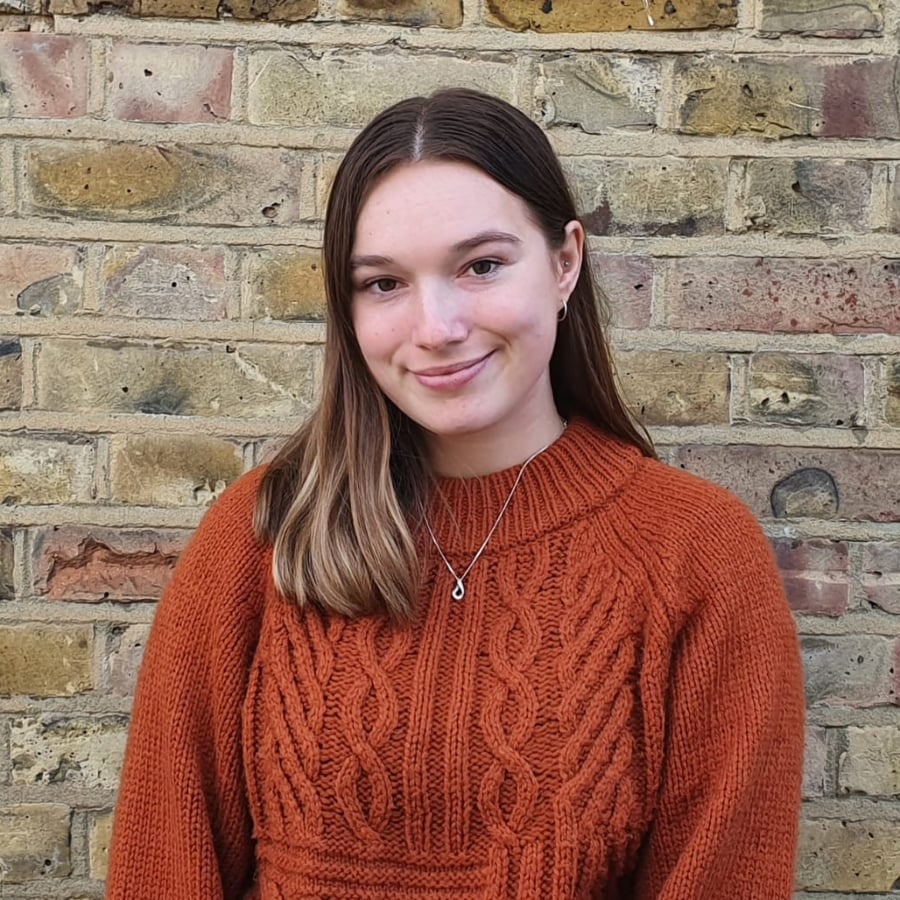 .
.
Email: [email protected]
Location: Sutton
Katie joined the ICR in 2021 as a PhD student. She previously obtained her Bsc at The University of Sheffield and went on to work as a medicinal chemist at Redx Pharma for a year. She is currently working on converting existing small molecule inhibitors into degraders by identifying structural features that can lead to target degradation.
Dr Olivia Rossanese's group have written 45 publications
Most recent new publication 3/2025
See all their publicationsThe Target Evaluation and Molecular Therapeutics Group works within the multidisciplinary environment of the Division of Cancer Therapeutics to identify novel targets for drug discovery and to support the discovery of new small-molecule therapeutics to inhibit these targets.
The focus of our research is not only the discovery of potent and efficacious drug candidates, but also on gaining an understanding of the underlying target biology and the mechanisms of compound action that lead to efficacy in cell and tumour models. Often, a complete understanding of the therapeutic relevance of target inhibition is not possible without a small-molecule inhibitor, but an exploration of the fundamental target biology can also lead to a better strategy for the design and implementation of targeted therapies.
To achieve these interrelated aims, we develop and conduct mechanistic and functional cell-based assays to test newly synthesised small molecules and drive decision making in chemistry. Examples of this include assays to measure cell proliferation and viability, anchorage-independent growth, kinase activity, migration, apoptosis and signalling, using a number of readouts and detection systems.
Assays must accurately reflect target biology and promote an understanding of the specific molecular consequences of target inhibition and how this contributes to the larger implications of oncogenesis. In parallel, we are engaged in efforts to validate novel targets, investigate the mechanisms of compound action, and identify suitable cancer cell lines and tumour types for testing targeted therapies.
We use this data to develop testable hypotheses regarding predictors of resistance and response to targeted agents, which may be relevant in generating patient selection criteria and a clinical plan.
Industrial partnership opportunities with this group
Opportunity: Discovering and developing small molecule inhibitors of ERAP1
Commissioner: Dr Esther Arwert
Recent discoveries from this group
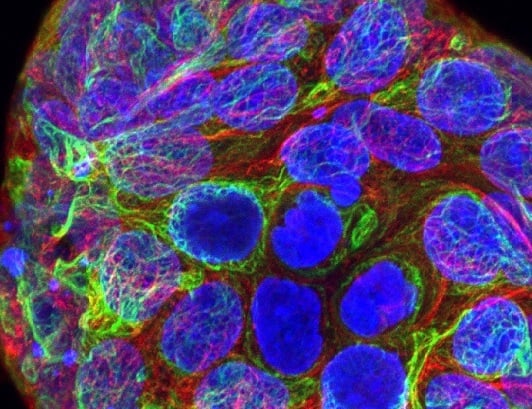
New AI drug discovery collaboration aims to design new precision cancer drugs
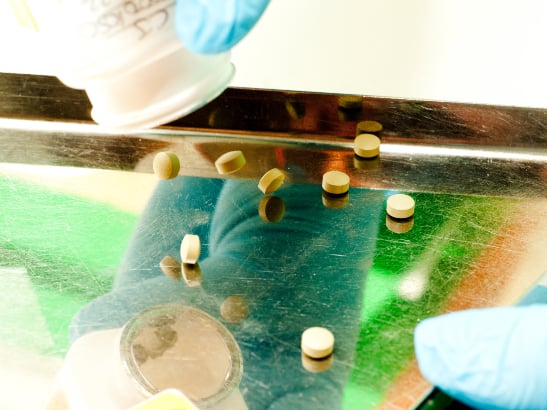
ASCO 2022: Drug combination shows promise against cancer’s ‘death star’ protein

ICR research showcased in world-first exhibition exploring cutting-edge cancer research
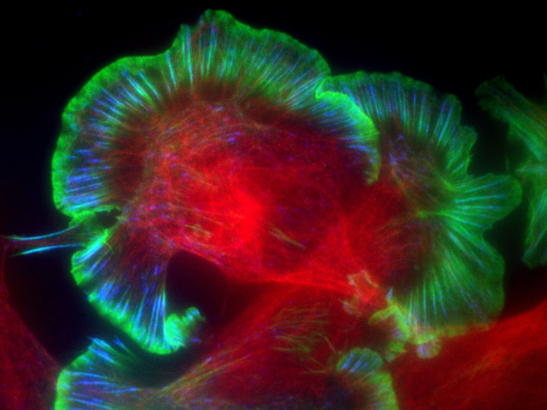
 .
.